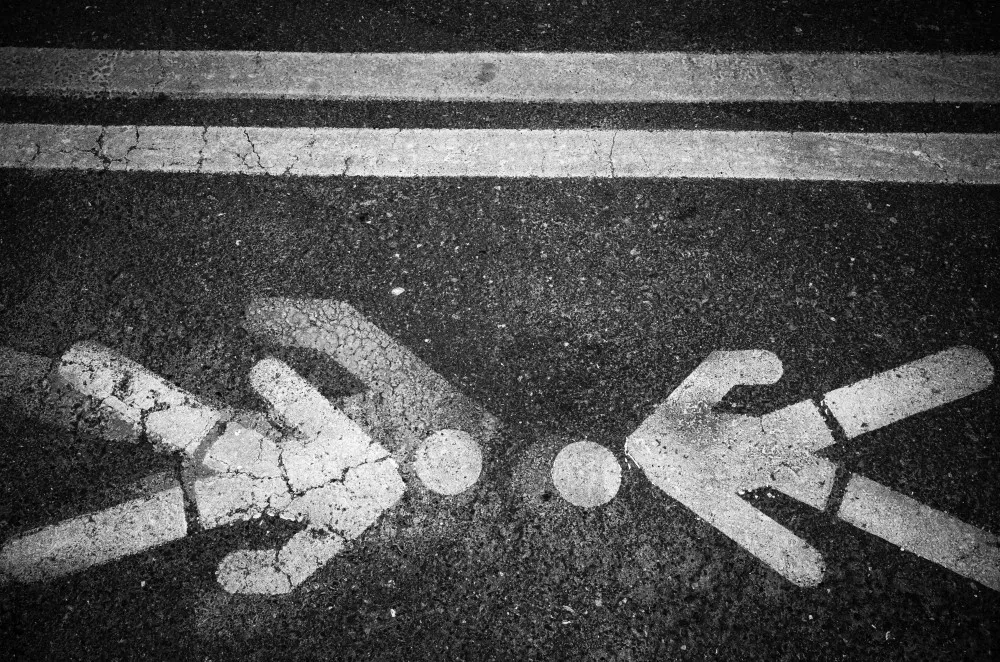Urbanism and me

I largely agree with the views of certain cyclist associations and "pro-bike" groups present on the Fediverse.
A city designed for pedestrians and cyclists, a "slow-paced" city, is a city that is truly lived in: children playing in the streets, bustling shops, nature becoming useful to humans in new ways, and thus encouraged rather than hindered.
I live in Piacenza, a city in northern Italy, in Emilia, a crucial logistics hub where several motorways intersect.
With courier depots, transport companies, and large distribution warehouses, the outskirts are extremely busy.
Sometimes, I wish I could live elsewhere: at the end of my street, less than 150 meters away, there is a barrier, and then the motorway.
The air quality is certainly not optimal, but from my area, I can reach the city center in 45 minutes by walking leisurely or in 10 minutes by bike.
In my city, there are semblances of bike lanes, yellow stripes carved out of the roadway on two-way streets, often improperly used as illegal parking, if the bike lane isn't painted on a sidewalk, perhaps on the more "inner" side, towards the buildings.
These masterpieces of "car-centric" urban planning, of course, lead the city to have a dead center, shops that continue to close, with scooters zipping alongside electric bikes to quickly reach workplaces before zipping back home, and cars clogging all the main roads during rush hours.
Sure, there is public bus transport, which becomes more and more "dried up" every few years by route cuts and other questionable choices.
The maintenance of green spaces and asphalt on the so-called bike lanes also leaves much to be desired.
The City Council wastes time and resources on "big projects" that the average citizen neither wants nor understands, while the center is stagnant due to a lack of daily life—it only comes alive during the "venerdì piacentini," the summer Fridays when shops stay open late, people eat out, and there is music—and the rest of the city is just a huge racetrack choked by speed bumps, traffic lights, and speed limits.
Those who drive, of course, want to go fast to arrive sooner, and accidents, even fatal ones, often occur between cars, or between cars and motorcycles, or bikes, or scooters, or pedestrians, due to speed and/or distractions.
Needless to say, this stems from the mistaken idea that streets are made for cars: wrong, they are made for people.
And to allow the safe circulation of these people using various means.
Hence, the various problems of protests when a parking space is removed to make way for a stretch of bike lane, or the "big projects," precisely, for the construction (in the city center) of mega-parking lots that take the place of possible public green parks.
Public transport is not strengthened, people become lazy, and thus always choose the widest and shortest path—the path of speed.
But perhaps man is not made to live at his own heart rate?
And we, who live and work in the city and have deadlines and things to do, wouldn't we prefer better ways to meet the schedules that routine imposes on us without necessarily having to rush?
Unfortunately, I take my daughter to the nursery on the other side of the city; traveling by car during rush hours has become a necessity for me, yet I am convinced that everything could be better if services, transport, urban planning itself, and finally everyone's routines (as a consequence) were designed with the well-being of people as the top priority.
What is good?
That one can arrive at work on time?
That one doesn't have to find traffic?
That the last one to arrive by car always finds parking?
Or that a disabled person can always find parking?
That sustainable means are privileged?
Or that motorized and electric means are privileged?
If certain metropolises do not experience the traffic problems of small cities, it is because more is invested in public transport and in making a gigantic city, which by its very nature is born in opposition to rural life, more human-sized, and also because larger cities often attract better minds (the best urban architect, the best engineer, the best surveyor, compared to the small municipality).
Yet, I don't see much wrong with those who prefer to move by car consciously, driving slowly, knowing how to drive and park, knowing that they are making a choice that is not primary to anyone, and that the city is not their own.
I appreciate those who drive vintage cars, from when the streets were empty and one could go fast because there was no one around, and there were still more technical speed limits.
Today, the situation is reversed.
The current automobile crisis is perhaps a sign: it's not good for those who work in those companies, but for everyone else, it could be an opportunity to change for the better and gradually reclaim their city.